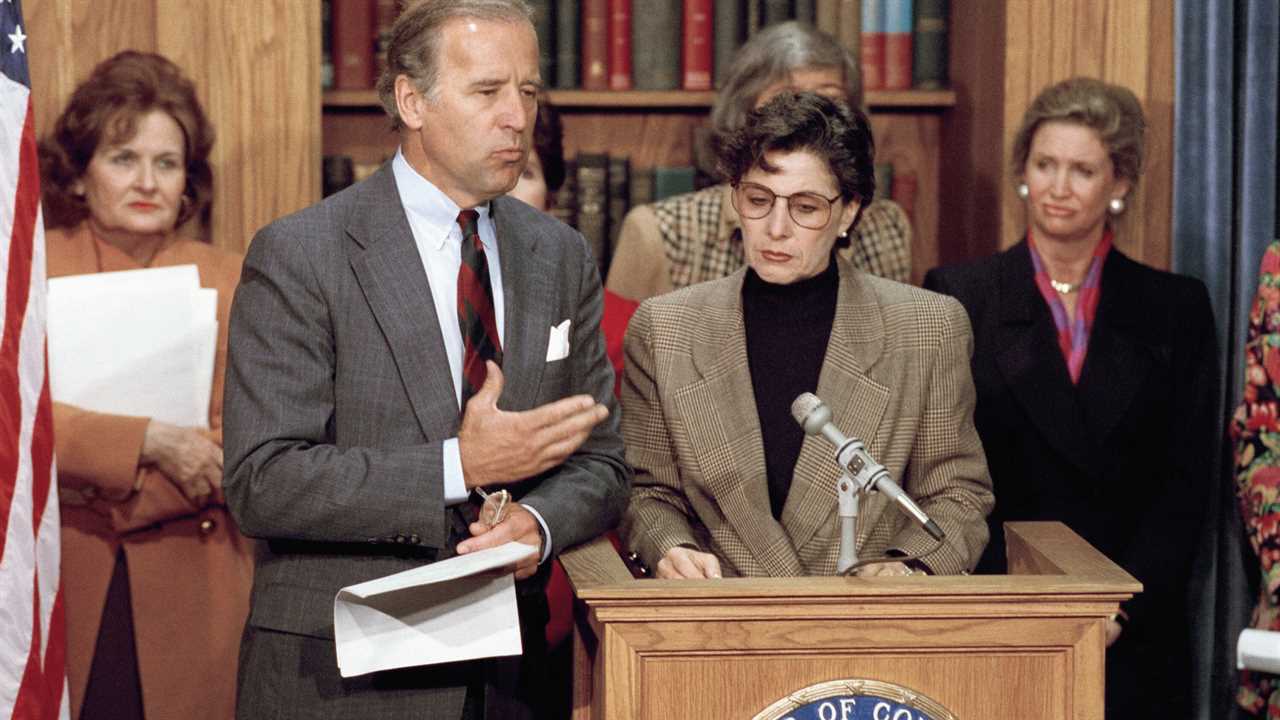
WASHINGTON — Since shepherding through the Violence Against Women Act in 1994, Joseph R. Biden Jr. has made combating domestic violence a central part of his political and policy work.
After becoming president, he created a Gender Policy Council with a senior White House adviser focused on gender violence, and his American Rescue Plan provides $49 million in aid and hundreds of millions of dollars in housing assistance to victims of domestic abuse and human trafficking.
Survivors and their advocates hope that he will fulfill the many campaign pledges he made to fight domestic abuse, including a plan to provide $5 billion in cash grants directly to people suffering at the hands of abusers.
Here is how he has addressed the issue throughout his career.
As a Senator
As a Democratic senator from Delaware, Mr. Biden initially assumed that the women’s movement had compelled more women to come forward about violent crimes, leading to an increase in reported data about such crimes, he said in his memoir, “Promises to Keep.” But soon he came to believe that violence against women was in fact “a cultural expectation” that most people shared, meaning “millions of women were at risk of being beaten in their own homes.”
He assigned a staff adviser, Victoria Nourse, to research the issue full time, and her work underpinned the draft legislation for the Violence Against Women Act, known as VAWA. When it passed in 1994, it funded violence prevention and housing assistance programs, created privacy protection for victims and ensured that restraining orders would be enforced anywhere in the country. Most important, it made the federal government responsible for fighting domestic violence.
He called VAWA “my proudest legislative accomplishment,” in an op-ed written in 2014 to mark the law’s 20th anniversary.
As Vice President
Shortly after becoming vice president, Mr. Biden created the position of White House adviser on violence against women to guide the president and vice president on issues of domestic abuse and sexual assault, and to coordinate the federal government’s efforts to combat it.
“The worst imprisonment in the whole world is to be imprisoned in your own home,” Mr. Biden said in 2009 when he announced the first adviser for the post, Lynn Rosenthal. His remarks underscored the overlooked reality that abused people are often isolated from loved ones, cut off from financial support and in other ways trapped.
He also helped create a White House task force dedicated to reducing dating violence among teenagers and young adults, who face relatively high rates of such abuse.
As President
On the campaign trail, Mr. Biden pledged to expand the social safety net for survivors of abuse; do more to stem online harassment, abuse and stalking; protect immigrants who experience abuse; and address the role that guns play in domestic abuse.
Whether he is able to fulfill those commitments during his time in office remains to be seen, but groups that help survivors were heartened that Mr. Biden’s $1.9 trillion stimulus package included millions of dollars to address the issue.
Mr. Biden appointed a senior White House adviser to focus on gender violence as part of his newly formed Gender Policy Council, so named to recognize that abuse broadly affects people of all sexes and gender identities.
“This should not be a Democratic or Republican issue,” Mr. Biden said on Wednesday, after the House reauthorized VAWA. “It’s a matter of justice and compassion.”
Did you miss our previous article...
https://trendinginthenews.com/usa-politics/four-in-10-republicans-say-the-capitol-rioters-anger-was-justified






